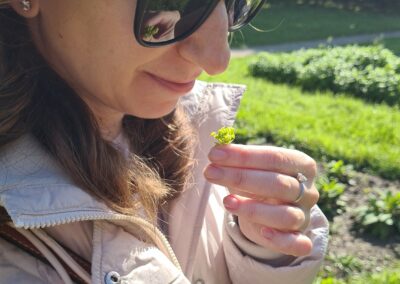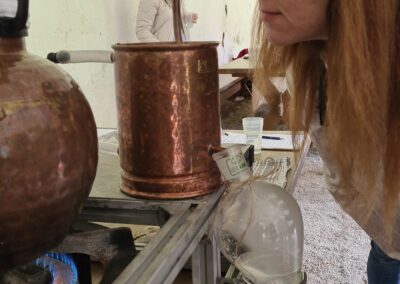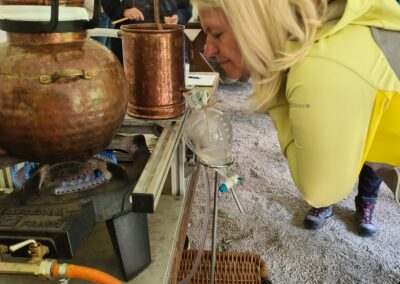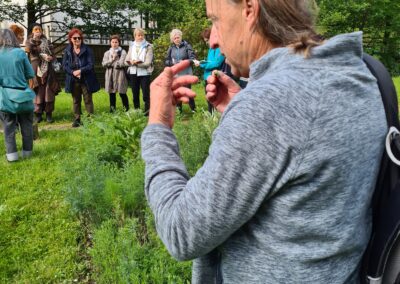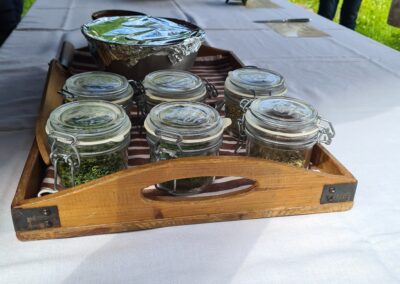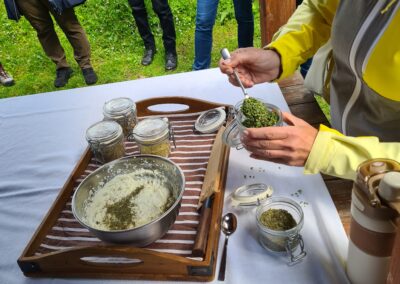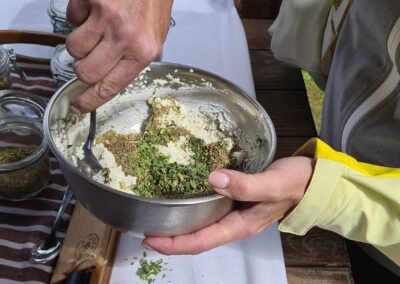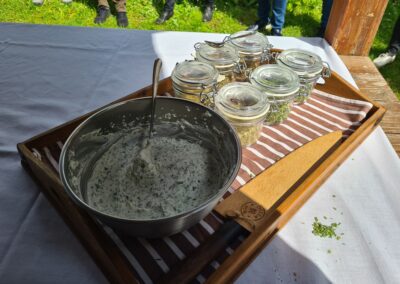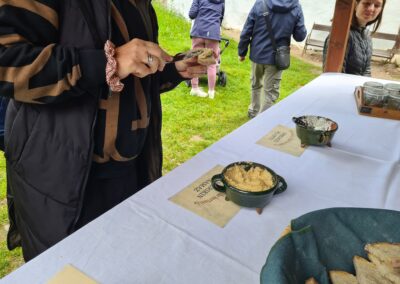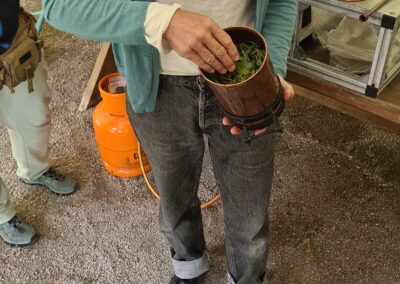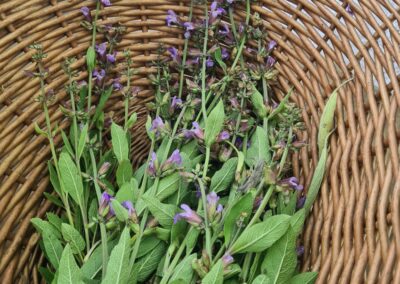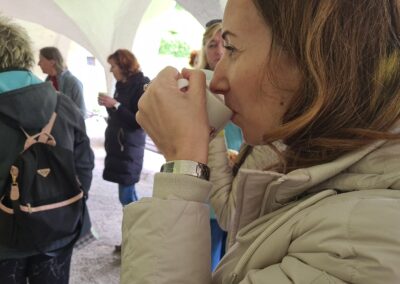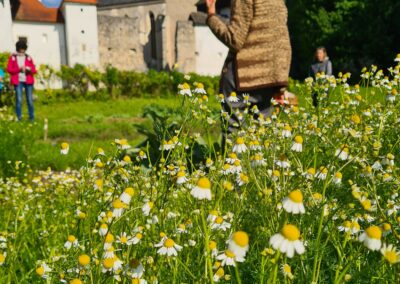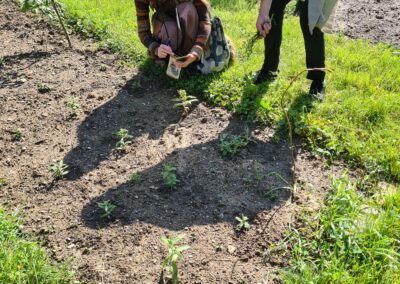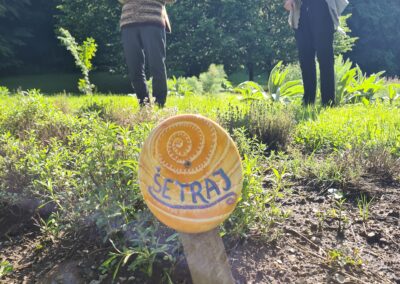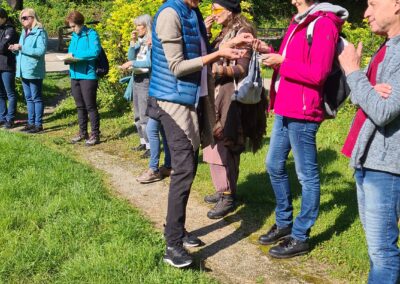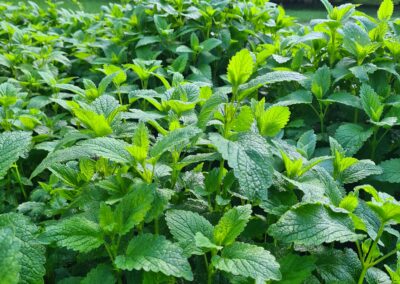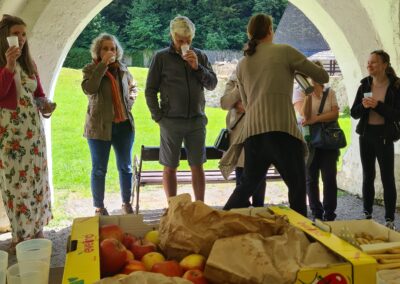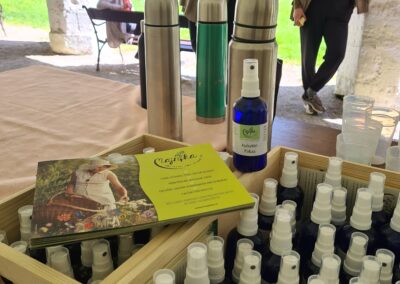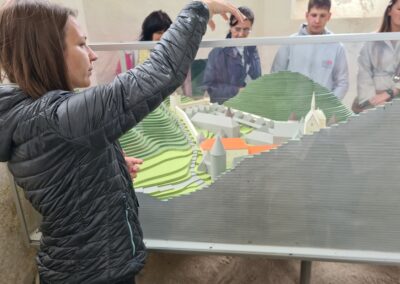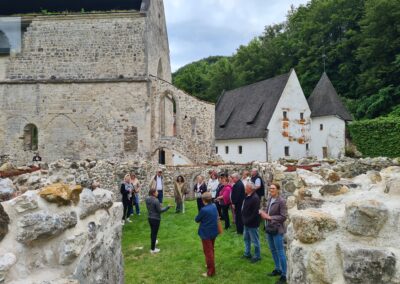The smell of change – the Slovenian pilot
Exploring sustainability through senses
In May 2025, our Slovenian team launched a unique nudge-based intervention designed to promote environmentally responsible behaviour by connecting rational understanding with cultural and emotional engagement. This initiative took place at the Žička Carthusian Monastery, a historic site renowned for its medicinal herb garden and centuries-old herbalist tradition.
History, nature & scent combined (a nudge intervention)
Participants began their journey with a guided tour of the Žička Carthusian Monastery’s historic herb garden and herbal pharmacy. The presentation highlighted the centuries-old herbalist knowledge of the Carthusian monks and introduced participants to the traditional uses of local herbs for healing and well-being. Through storytelling and direct sensory engagement, participants explored how the heritage of herbal medicine connects with today’s efforts toward sustainability and mindful living.
Sensory Workshops (cultural intervention)
This intervention was a series of three interactive workshops focused on smell, but also touch, and taste – all rooted in the monastery’s rich herbal tradition.
Smell Walk
Participants explored the rhythms of nature in the Žička Carthusian herb garden. They learned about properties and use of different local herbs, observed and smelled herbs in their natural habitat, harvesting them to prepare tea. Reflections on scent were recorded throughout.
Smelling Before Tasting
In this culinary workshop, participants created herbal spread using dry herbs while learning about Carthusian herbalism. This was followed by a tea-tasting experience, where participants had to guess which tea they are drinking by smelling them.
Give it a Try!
This final session introduced the process of making herbal hydrolates which have a very wide range of applications. Each participant could smell aromatic vapor and even taste the hydrolat itself! At the end they took home a sample.
By incorporating both rational information and emotional resonance through smell, this pilot encouraged deeper reflection on climate change and personal responsibility. Participants didn’t just learn, they engaged, experienced, and remembered.
This pilot forms a vital part of the broader NUDGES evaluation, which explores how creative and sensory interventions can gently shift behavior toward greener choices – not only through information, but through inspiration.

